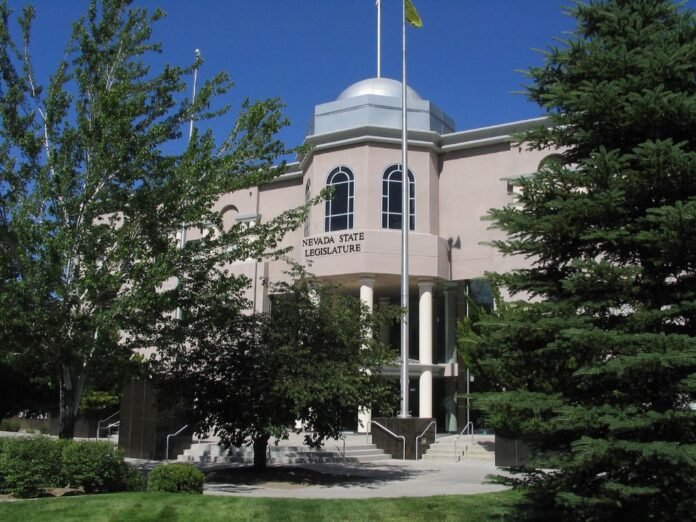A bill to ban hydraulic fracturing in Nevada died earlier this week when it failed to emerge from the state’s Senate Natural Resources Committee and lawmakers adjourned at midnight on Monday.
Assembly Bill 159, sponsored by Assemblyman Justin Watkins (D-Las Vegas), had passed the Nevada Assembly but saw no vote in the state Senate after a committee hearing on May 30.
Nevada would have been the fourth state to ban fracking but the first in the West, following in the footsteps of Maryland, New York, and Vermont.
Nevada will not be able to revisit the issue until the 2019 Nevada legislative session.
A March Western Wire investigation revealed the ties between Watkins and California billionaire Tom Steyer, who donated $70,000 to five Nevada candidates in the 2016 election cycle, including $10,000 directly to Watkins. Steyer has supported a fracking ban in California in the past.
Paul Enos, CEO of the Nevada Trucking Association and representing the Nevada Petroleum and Geothermal Society, told Western Wire that he appreciated the Senate’s more deliberative and bipartisan process in reviewing the potential ban.
“They looked at what a fracking ban would do in absolutely halting any oil and gas exploration in the state of Nevada but also what it could potentially do to those leaseholders that are paying millions of dollars in lease payments and royalties,” Enos said. Those leaseholders are concentrated in the state’s rural central and eastern sections, Enos said, as are the school districts that rely on the revenues.
“They thought better of proceeding with the ban,” Enos said.
Just five wells have been drilled using fracking, with other productive wells in the state using conventional drilling methods.
“Nevada is still a new frontier for oil and gas exploration,” Enos said. “A fracking ban would disrupt exploration activities and kill the prospects for future projects.”
Enos estimated approximately $3 million per year in lease payments to the state of Nevada over the last decade, with $1.7 million in 2016.
The figure has reached as high as $7 million when oil prices were higher, said Enos.
“For those rural school districts where exploration is taking place, it is definitely a lot of money,” Enos said. Rural areas support exploration, according to Enos, while the majority of support for the bill itself came from Nevada’s urban centers.
Jerry Walker, a Nevada petroleum geologist who testified against the bill, told Western Wire AB 159 threatened the prospects of natural resource development in the state by banning one of the key tools in exploration.
“From the viewpoint of the Nevada oil industry, the bill’s demise means high potential unconventional plays that require hydraulic fracturing, such as the Mississippian Chainman Shale and Tertiary Elko Formation, can continue to develop,” Walker wrote.
Walker agreed with Enos saying the bill also had clear implications for rural school districts.
“From the viewpoint of our State’s financial health, the bill’s demise means Nevada’s share of revenue from BLM oil-and-gas lease bonuses and annual rentals that go into the Distributive School Account will endure,” Walker continued.
The defeat of the bill in the current session, according to Walker, was a victory for “rational consideration” of the effects of a fracking ban, and applauded the effort to keep “emotions and fear at bay.”

